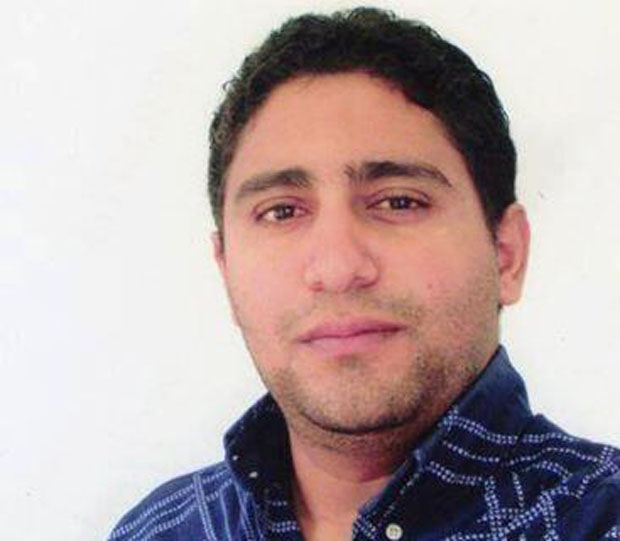Index relies entirely on the support of donors and readers to do its work.
Help us keep amplifying censored voices today.
The United Arab Emirates stand accused of blocking criticism over their human rights record, according to international monitoring group Human Rights Watch.
Each year the organisation publishes a global assessment of human rights. This year marked their 24th annual review and summarised key human rights issues in more than 90 countries and territories worldwide, drawing on events from the end of 2012 to November 2013. The work is available for free from their website.
The report contained a 1,400 word chapter about United Arab Emirates, criticising the country for abuses carried out against migrant workers, womens rights, use of torture, arbitrary detention, a poor justice system and lack of political freedom.
Following its publication online, Mohammed Ahmed Al Murr, Speaker of UAE’s Federal National Council (FNC), denounced the report, telling a government meeting:
“It involves many fallacies that are not based on any foundation and contradict several other international organisations’ statements, which testify to the significant progress achieved by the UAE and its honourable record in various areas of human rights.”
His criticisms were published by the state news agency on 22nd January 2014.
That same day, a press event in Dubai was cancelled unexpectedly, when staff at the Novotel hotel told Human Rights Watch that a government permit to hold the event had not been obtained.
“The staff were nervous, they’d been put in a difficult position,” explained Nick McGeehan, Middle East Researcher for Human Rights Watch, who was due to speak at the event.
“They told us that our event had to be cancelled, because a permit had not been obtained.”
“So I asked “If I get this permit, can we run the event?” Then they told me that the room had already been given away to someone else. That’s when we realised the event had probably been prevented from going ahead by someone in the government,” McGeehan told Index on Censorship.
The launch of the report had been accompanied by a series of press conferences, kicking off in Berlin then covering Moscow, London, Sao Paolo, Washington DC, Jakarta and Johanesburg, as well as Tripoli, Sanaa, Kuwait City and Amman. Dubai was the only location where the press conference was not allowed to take place.
Human Rights Watch say they’ve held several news conferences in Dubai since 2005, without any requirement for an advance government permit. They also say they haven’t been able to find information about such laws or permit requirements from their research.
In February 2012, at the last Human Rights Watch news conference in Dubai, people who identified themselves as UAE government employees interrupted the event, stating that a permit was required. Following this incident, Human Rights Watch wrote to Shaikh Mohammad bin Rashid al-Maktoum of Dubai to request clarification, but say they received no reply.
“Blocking Human Rights Watch from holding a news conference in the UAE sadly underscores the increasing threat to freedom of expression in the country,” said Sarah Leah Whitson, Middle East and North Africa director at Human Rights Watch, in a statement issued on Human Rights Watch website. She was preparing for a planned trip to Dubai in just a few days.
“If the UAE wants to call itself a global media center, it needs to show that it respects freedom of speech and the open expression of critical ideas, not shut down media events,” she added.
Her statement was issued on 22 January – two days later she was barred from entering the country when she landed at Dubai airport for the start of a two day tour.
Whitson has traveled to the UAE on numerous occasions. An ex-Goldman Sachs lawyer who attended Harvard Law School in the same class as Barack Obama, she has conducted several human rights missions in the Middle East, including examining the impact of war and sanctions on the Iraqi civilian population, elections in Kurdish-controlled northern Iraq, and human rights issues in southern Lebanon.
Whitson’s boss, Kenneth Roth, stepped in when he heard news of her rejection at the border.
“These petty tactics by the UAE authorities only demonstrate the government’s intolerance of free speech and fear of critical discussion,” he said.
“Human Rights Watch will continue to document abuses in the UAE and to urge the government to comply with its most basic human rights obligations.”
In contrast to her reception in Dubai – Whitson went on to Yemen, where she meet with the transition government and had, according to the state news agency, a “fruitful” meeting. Human Rights Watch also levelled strong criticism at the Yemeni authorities in their annual report, accusing them of “failing to address multiple human rights challenges.”
Unable to hold the event as planned, Nick McGeehan stayed on for a day to was pulled aside by customs officials as he left Dubai, and told he had been permanently “blacklisted.” His colleague Tamara Alrifai, Advocacy and Communications director for the Middle East and North Africa division, who had also been scheduled to speak at the event, was told the same. The parting words from the customs officials, polite but firm, were allegedly “You are not welcome in my country.”
Human Rights Watch is an independent, nongovernmental organization, supported by contributions from private individuals and foundations worldwide. It accepts no government funds, directly or indirectly, and although based in the US, has been fiercely critical over issues such as Guantanamo Bay and the “war on drugs.” It also maintains offices all over the world and works closely with local activists.
This article was published on 29 January 2014 at indexoncensorship.org

Staff at Newtownabbey’s Theatre on the Mill return promotional posters to hoardings after the local council overturned a ban on the Reduced Shakespeare Company’s The Bible: The Complete Word of God (Abridged). Image Conor Macauley/Twitter
Councillors in Newtownabbey, Co Antrim, Northern Ireland last night voted to overturn a controversial ban on a Bible-based comedy in the town’s theatre. The town had hit international headlines last week after Christian councillors had sought to stop performances of the Reduced Shakespeare Company’s The Bible: The Complete Word of God (abridged).
The Newtownabbey Times reports that town councillors criticised pressure put on the town’s Artistic Council by some members of the Democratic Unionist Party, with one politician denouncing them as “continuity Paisleyites who want to take us back to the Dark Ages.”
The Democratic Unionist Party, which was founded by fundamentalist Christian preacher Ian Paisley, sought to distance itself from the original decision, though its members had been accused of being responsible for pressuring the artistic council into stopping the performances.
The performances will now go ahead on Wednesday and Thursday of this week, as originally scheduled.
This article was posted on 28 January 2014 at indexoncensorship.org

The imprisonment of Jabeur Mejri over the publication of prophet Muhammad cartoons on his Facebook page is set to come to an end soon, reports Tunisian local media.
Mohamed Attia, vice-president of the Tunisian League for Human Rights (LTDH) told privately-owned radio station Shems FM that Mejri will soon be released, and that he will travel to Sweden where he has allegedly obtained political asylum. The announcement comes after civil society groups visited Mejri in prison on 21 January.
The initiative was led by the International Federation for Human Rights (FIDH) and included representatives from the LTDH, the Tunisian Forum for Socio Economic Rights (FTDES) and Mejri’s support committee.
Mejri has been in prison for nearly two years for posting cartoons of the Prophet Muhammad on his Facebook page. He was sentenced to a seven-and-a-half year jail term for “publishing material liable to cause harm to public order or good morals”, “insulting others through public communication networks” and “assaulting public morals”.
His friend Ghazi Beji, who received the same sentence in absentia after fleeing the country, obtained political asylum in France last year.
“I cannot enjoy my freedom in Tunisia. So, I have to leave my country,” Jabeur told Henda Chennaoui, a member of his support committee, during last week’s visit.
But in order to leave the country, Mejri must first obtain a presidential pardon. Despite Tunisian president Moncef Marzouki promising this on a number of occasions, he has so far not kept his pledge.
Meanwhile, Tunisia’s National Constituent Assembly (NCA) overwhelmingly approved a new constitution on Sunday. Though the charter enshrines freedom of expression, provisions that restrict free speech over religious issues have raised concerns.
Article 6, on freedoms of belief, conscience and religious practice, tasks the State with “protecting sanctities”. The article was expanded in early January to ban “Takfir” (apostasy accusations), at the request of opposition representatives in the NCA. The same article was further amended last week to prohibit the “undermining of sanctities”.
“The state sponsors religion, guarantees freedom of belief and conscience and religious practices, protects sanctities, and ensures the neutrality of mosques and places of worship away from partisan instrumentalisation. The state commits to spreading values of moderation and tolerance, and to protect the sacred and prevent its undermining. [The state] also commits to ban and fight accusations of apostasy (“takfir”) hate speech and incitement violence,” it states.
“Article 6 remains the shame of this constitution: a clear and definite restriction of free speech,” Amira Yahyaoui, president of human rights NGO Albawsala, tweeted on 23 January.
“There are several vague points that open the door to the return of censorship, especially with the establishment of the protection of the Sacred [notion],” Lotfi Azouz, director of the Tunis bureau of Amnesty International said at a press conference on Saturday. Free speech provisions in the constitution are “chained up by principles that could harm this freedom”. He further added that article 6 “establishes censorship in the name of protecting the sacred”.

(Photo illustration: Shutterstock)
Measures implemented by Chinese authorities in 2013 are “reminiscent of the Mao era four decades ago,” the International Federation of Journalists (IFJ) said in a statement accompanying the latest edition of their annual China Press Freedom report.
The press freedom organisation argues that “Chinese authorities continued to tighten their grip on information and media outlets” in 2013.
Among other things, the report — which four journalists from the region contributed to — states that new leader Xi Jiping “set out to strengthen the use of the media as a propaganda tool”. Journalists and bloggers were also forced to make “televised confessions” and “tens of thousands of online messages were deleted, and many websites were shut down”.
The situation for foreign media was also poor, with foreign journalists receiving death threats, and international websites being blocked.
The report also covered Hong Kong and Macau. Journalists in Hong Kong received “verbal and physical abuse” and there were attacks on, and threats to, media owner and outlets. Macau is experiencing “a growing trend to self-censorship”.
The IFJ made a number of recommendations, including calling on the Chinese government to release jailed journalists, stop “arbitrary and unexplained employment terminations” and “order and end to state security misusing the law to intimidate and silence journalists.”
“Press freedom is a human right and the media must be able to perform their professional duties without fear and intimidation,” the group said.